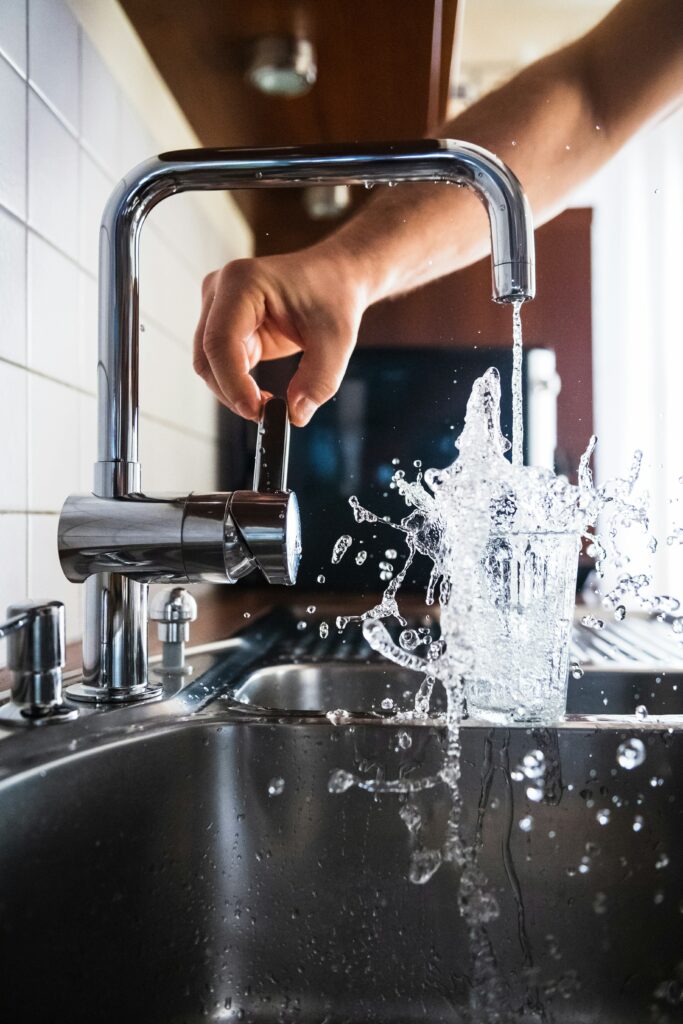Recognizing Plumbing Emergencies
In the bustling city of Dublin, plumbing emergencies can strike at any moment. Knowing how to recognize the signs of potential plumbing problems can save time, money, and prevent extensive damage to your home or office.
Common Signs of Plumbing Problems
Plumbing issues can manifest in various ways, and being aware of these can help you identify when it’s time to take action. Below are some common signs that your plumbing system may be in distress:
- Persistent Dripping or Leaking: Faucets or pipes that continually leak water can lead to higher water bills and potential water damage.
- Slow Draining Sinks or Bathtubs: This can indicate a clog in your drains that, if left unaddressed, could lead to a complete blockage.
- Gurgling Sounds: Unusual noises coming from your drains or toilets can be a sign of a blockage within the plumbing system.
- Low Water Pressure: A sudden drop in water pressure might be the result of a hidden leak or a problem with the main water line.
- Water Stains or Damaged Walls: Discoloration or warping on walls and ceilings can be evidence of a leaky pipe.
- Unpleasant Odors: Persistent sewer-like smells may indicate a broken sewer pipe or vent.
| Sign | Possible Cause |
|---|---|
| Persistent Leaks | Faulty pipes or fixtures |
| Slow Draining | Clogs or obstructions |
| Gurgling Sounds | Trapped air in the pipes |
| Low Water Pressure | Leaks or main line issues |
| Water Stains | Leaks in walls or ceiling |
| Unpleasant Odors | Sewer line problems |
When to Call an Emergency Plumber
When faced with a plumbing emergency, it’s crucial to act swiftly to mitigate damage and restore functionality. Here are some scenarios when enlisting the services of an emergency plumber Dublin is necessary:
- Burst Pipes: Immediate intervention is required to prevent water from causing extensive damage to your property.
- No Hot Water: If your water heater fails, especially during colder months, you’ll need a rapid response to avoid discomfort and potential freezing of pipes.
- Overflowing Toilets: This can quickly lead to sanitation issues and requires urgent attention.
- Sewer Backup: The health risks and potential damage from a sewer backup make it imperative to call for professional help immediately.
If you encounter these or any other signs of plumbing emergencies, do not hesitate to reach out to a professional. Dublin residents can find a comprehensive guide on dealing with such issues in our article on emergency plumbing in Dublin: how to handle a crisis. Remember, timely professional intervention can prevent a minor issue from escalating into a full-blown emergency.
Quick Fixes for Common Plumbing Issues in Dublin Homes
Homeowners in Dublin often encounter various plumbing issues that can range from minor annoyances to significant emergencies. Knowing some quick fixes for these common problems can save time and prevent further damage before professional help arrives.
Dealing with Leaky Faucets
Leaky faucets are not only irritating, but they can also lead to water wastage and increased bills. A temporary solution is to turn off the water supply and remove the faucet handle to tighten the valve or replace a worn washer. This might resolve the dripping temporarily. For a comprehensive guide, consider reading leak detection and repair: Dublin’s essential plumbing guide.
Addressing Clogged Drains
Clogged drains can cause water to back up and lead to potential water damage. A plunger can often dislodge minor blockages. For tougher clogs, a mixture of vinegar and baking soda followed by hot water may clear the pipes. If these methods don’t work, it’s time to contact an emergency plumber in Dublin to professionally address the issue.
Managing Running Toilets
A running toilet can waste a significant amount of water. Adjusting the float ball or replacing the flapper inside the tank are quick fixes that can often stop the continuous flow. For persistent problems, it may be necessary to shut off the water and call an expert from Dublin’s emergency plumbing services.
Handling Burst Pipes
Burst pipes can cause extensive damage to a home. As an immediate step, turn off the main water supply to prevent flooding. Then, drain the remaining cold water by turning on all cold taps. Avoid using electrical appliances and call a professional immediately. For assistance, refer to burst pipes in Dublin: fast response solutions for your home.
Responding to Water Heater Failures
When a water heater fails, it can disrupt daily routines. If there’s a lack of hot water or signs of leakage, check the temperature setting and look for any visible signs of damage. Do not attempt to repair gas or electric water heaters yourself; instead, contact professionals from 24-hour emergency plumbing in Dublin who can safely resolve the issue.
These quick fixes can provide temporary relief from common plumbing issues. However, for any plumbing emergency, it is crucial to seek help from skilled professionals. Emergency plumbing in Dublin provides residents with the expertise needed to handle any situation promptly and efficiently.
Preparing for a Plumbing Emergency
In Dublin, residents and business owners alike can face plumbing emergencies that require swift action. Being prepared can mean the difference between a quick fix and extensive damage. Here’s how to be ready for any plumbing mishap that might arise.
Essential Tools for Quick Repairs
Every household or office should have a basic set of tools on hand to address minor plumbing issues as they occur. Here are some essential items to include in your plumbing repair kit:
- Adjustable wrenches of various sizes
- Plunger for unclogging drains and toilets
- Pipe wrench for gripping and turning pipes
- Screwdrivers for adjusting fixtures
- Teflon tape for sealing pipe threads
- Plumbing putty for sealing and securing
- Tubing cutter for cutting through pipes
Having these tools readily available can help you perform temporary fixes or control a situation until professional help arrives. For guidance on how to use these tools for common plumbing problems, refer to the Dublin homeowners guide to emergency pipe repairs.
Shutting Off Your Water Supply
Knowing how to shut off your water supply is crucial in a plumbing emergency to prevent flooding and water damage. You should locate and label the main water shut-off valve in your home or office as well as isolation valves on individual fixtures. Here’s a simple instruction set:
- Locate the main water shut-off valve (usually near the water meter).
- Turn the valve clockwise to stop the water flow.
- For localized issues, use isolation valves to turn off water to specific areas without affecting the entire property.
For a step-by-step guide, visit emergency plumbing in Dublin: how to handle a crisis.
Preventative Measures to Avoid Disasters
Preventative maintenance is key to avoiding plumbing emergencies. Regular checks and maintenance can help identify potential issues before they escalate. Consider these measures:
- Regularly inspect pipes for signs of wear or damage.
- Use strainers in sinks to prevent clogging from debris.
- Avoid flushing non-degradable items down the toilet.
- Schedule an annual inspection with a professional plumber.
For more in-depth preventative tips, check out avoiding plumbing disasters: emergency tips for Dublin residents.
Being prepared for a plumbing emergency involves having the right tools, knowing how to shut off your water supply, and taking preventative steps to reduce the risk of emergencies. Should you encounter a situation beyond your control, don’t hesitate to contact emergency plumber Dublin for rapid, professional assistance.
Professional Help for Plumbing Emergencies
When faced with a plumbing crisis, sometimes the most effective solution is to call in a professional. In Dublin, emergency plumbers are equipped to handle a wide range of issues with speed and expertise.
What to Expect from an Emergency Plumber Visit
During an emergency plumber visit, homeowners can expect prompt service designed to quickly address the critical situation. Here’s what typically happens:
- Assessment: Upon arrival, the plumber will assess the situation to determine the cause and extent of the plumbing emergency.
- Explanation: They will explain the issue to the homeowner, outlining the necessary steps to resolve the problem.
- Immediate Action: If possible, the plumber will perform an immediate fix to stop the damage and prevent further issues.
- Long-Term Plan: They will discuss long-term repair options if a quick fix isn’t a viable solution.
- Cost Estimate: The homeowner will receive a detailed estimate of the costs involved for both immediate and any long-term repairs.
An emergency plumber’s goal is to restore functionality to your plumbing system as quickly as possible while minimizing damage to your home.
The Importance of Timely Professional Intervention
When it comes to plumbing emergencies, time is of the essence. Delays in addressing issues such as burst pipes, severe leaks, or water heater failures can lead to extensive property damage, costly repairs, and even health hazards.
The benefits of swift professional intervention include:
- Minimizing Damage: Immediate action can prevent water damage to the home’s structure and belongings.
- Health and Safety: Reducing the risk of mold growth and water contamination that can affect the inhabitants’ health.
- Cost Savings: While emergency services may have a higher immediate cost, they can save homeowners money in the long run by preventing more severe problems.
For further information on why timely intervention is crucial, and tips on how to handle a plumbing crisis, check out emergency plumbing in Dublin: how to handle a crisis.
Homeowners should not underestimate the importance of having a professional address their plumbing emergencies. The expertise and equipment that an emergency plumber brings to the table can be a lifesaver, providing quick fixes for common plumbing emergencies in Dublin homes and ensuring the long-term health of your home’s plumbing system.
Long-Term Solutions for Plumbing Health
To ensure the longevity of your plumbing system and avoid frequent plumbing emergencies, it’s crucial to adopt long-term strategies. These include regular maintenance routines and, when necessary, upgrading your plumbing system.
Regular Maintenance Tips for Home Plumbing
Maintaining your home’s plumbing system is essential to prevent emergencies and extend its lifespan. Here are some maintenance tips every Dublin homeowner should consider:
- Inspect for Leaks: Regularly check all exposed pipes, including under sinks and behind toilets, for signs of leaks.
- Clear Drains: Use a hair strainer in showers to prevent clogs and flush your drains with boiling water monthly to keep them clear.
- Insulate Pipes: To prevent freezing and bursting during colder months, insulate exposed pipes.
- Test Water Pressure: High water pressure can damage pipes. Test it annually and install a pressure regulator if necessary.
- Flush Your Water Heater: Sediment buildup can reduce efficiency and cause damage. Flush the heater once a year.
For detailed guidance on leak detection and plumbing maintenance, refer to leak detection and repair: Dublin’s essential plumbing guide.
Upgrading Your Plumbing System
Sometimes, despite regular maintenance, the plumbing system may require an upgrade, especially in older Dublin homes. Here are signs you might need to upgrade:
- Frequent Leaks: If you’re constantly fixing leaks, it may be more cost-effective to replace older sections of piping.
- Low Water Pressure: Persistent low water pressure can indicate corroded or clogged pipes that need replacement.
- Visible Corrosion: Any visible signs of corrosion on pipes suggest they are deteriorating and should be replaced.
- Water Discoloration: Brown or yellow water can signal decaying pipes that might be releasing rust into your water supply.
When considering an upgrade, it’s wise to consult with a professional. For expert advice and service, explore options with Dublin’s top emergency plumbers: rapid response for your home.
By implementing regular maintenance and considering upgrades when necessary, Dublin homeowners can effectively manage their plumbing systems, preventing emergencies and ensuring a well-functioning home.


